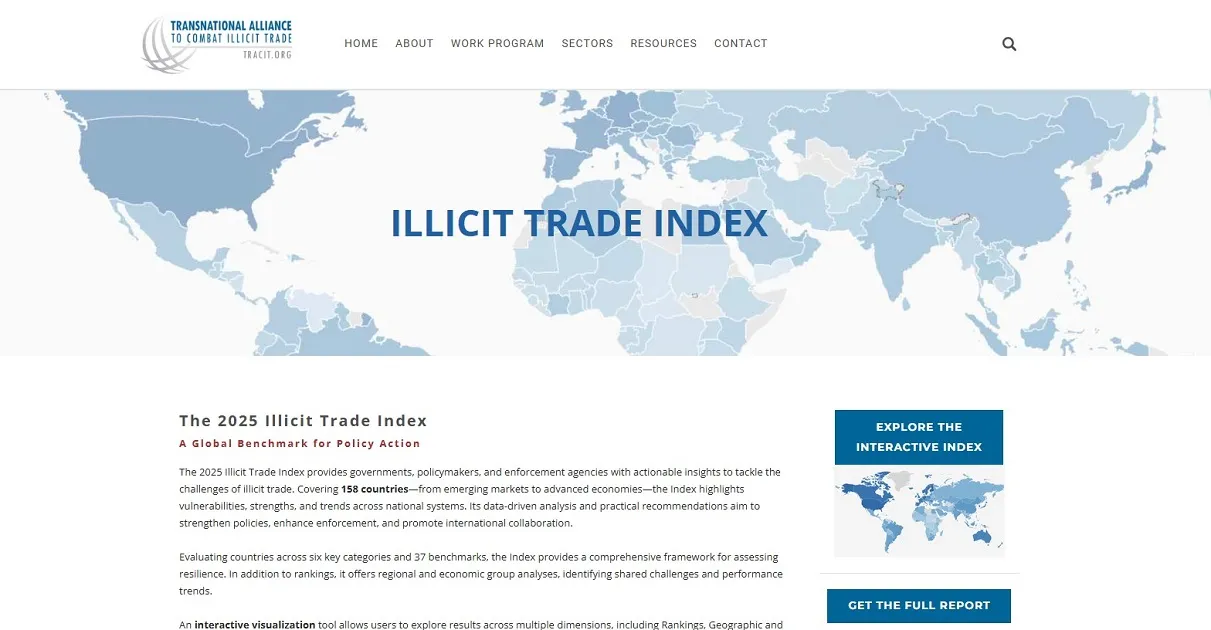Islamabad: Pakistan’s score of illicit trade index 2025 is 44.5 which is 76 for Denmark the highest score 25.7 of Yemen the lowest.
Pakistan falls in priority countries for mitigating illicit trade in pharmaceuticals, the repo cites.
Notably, Pakistan falls among those countries with relatively poor scores on IPR protections closely map those that have been identified as risks to counterfeiting.
These include Argentina, Barbados, Belarus, Bolivia, Brazil, Bulgaria, Cambodia, Canada, Chile, China, Colombia, Ecuador, Egypt, Guatemala, India, Indonesia, Kyrgyzstan, Malaysia, Mexico, Niger, Pakistan, Paraguay, Peru, Philippines, Russia, Saudi Arabia, Thailand, Trinidad & Tobago, Turkey, Turkmenistan, UAE, Venezuela and Vietnam.
Local Launch of the Report
The Global Illicit Trade Index 2025, along with a comprehensive report titled Combating Illicit Trade in Pakistan: A Structural and Policy Analysis, was officially launched in Islamabad at the local hotel.
The event was organized through a collaborative effort between the PRIME Institute and the Transnational Alliance to Combat Illicit Trade (TRACIT), drawing the participation of key stakeholders from government, industry, and civil society.
The launch served as a platform to reaffirm Pakistan’s growing resolve to address the challenge of illicit trade across various sectors. In his closing remarks, Chief Guest Rana Ihsaan Afzal Khan, Coordinator to the Prime Minister for the Ministry of Commerce, highlighted recent structural reforms and policy initiatives led by the Federal Board of Revenue (FBR).
He particularly emphasized the implementation of the Faceless Customs Assessment System and the expansion of the Track and Trace mechanism to include pharmaceuticals and petroleum products.
Read More: Pakistan’s Trade Deficit with Neighboring Countries Grows
Khan also underscored advancements in customs operations along the country’s borders, especially reforms in the Afghan Transit Trade, which now include bank guarantee requirements and improved scanning procedures—steps aimed at curbing smuggling and increasing transparency.
Delivering the keynote address, TRACIT Director General Jeffrey P. Hardy commended Pakistan’s efforts in fighting illicit trade.
He also shared insights into global strategies to counter this growing menace, encouraging countries to adopt multi-stakeholder, systemic approaches.
Hardy praised Pakistan for making tangible progress and called for continued cooperation and vigilance.
Both launched reports outline critical recommendations for shaping a unified, policy-driven response to illicit trade.
Also Read: Torkham Border Post Reopens for Trade and Medical Emergencies
They advocate for a holistic, whole-of-society framework that mobilizes the public and private sectors, as well as civil society, to strengthen governance and enforcement.
The event concluded with dynamic discussions among participants, reinforcing a collective commitment to safeguarding the country’s trade environment and upholding integrity in cross-border commerce.









